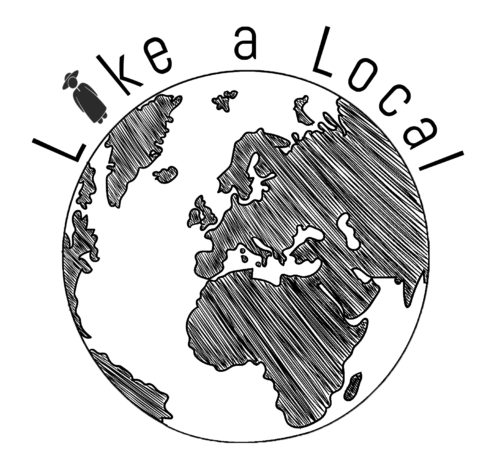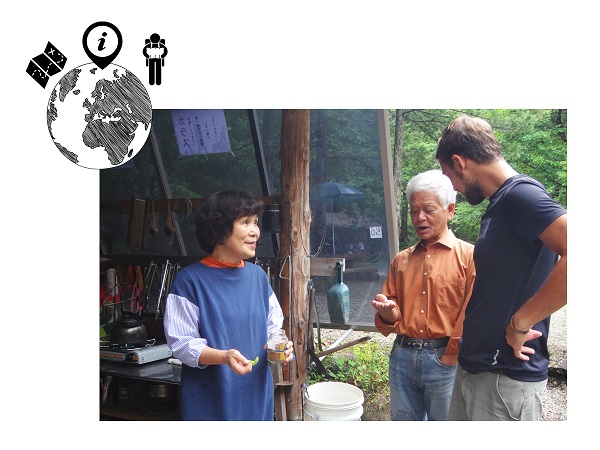What’s on this page?
Find here some useful tips and advice when travelling around the world to help you find the best information and ideas when visiting a country.
Travel Information Advice page content:
Mix & Match
As a rule, always mix different ways of getting information. Cross information resources to quickly see what’s mainstream and too touristy, what’s touristy mainstream but still worth doing, what’s off beaten track.
Always value more independent and local sources.
Travellers
Asking other travellers is the quickest, best and more up to date information you can get. You will meet a lot of people going the opposite way who have done what you are going to do next. You can spend hours reading through guide books when it takes a nice chat over a drink with a well-travelled person to get some relevant information (and up to date ones).
Don’t blindly take their tips for granted though, try to get to know the person a bit to see if it is your kind of people or not, if you are on the same page travelling wise. There are a lot of not so good tourists (we won’t call them travellers) out there and their tips are often based on the lonely planet that sticks out of their backpacks or as good as their taste. Hum hum…
Guide Books
I am not a big fan of guide books at all and I think you shouldn’t travel with one.
- Too mainstream (how many people base their trip solely on them!)
- Too heavy (you don’t want that extra weight)
- Too outdated (checked some places that were still on the latest book but were shut down for ages)
- They are so everywhere that you will have plenty of occasions to read them on the way (hostels, other travellers)
- (you don’t need more reasons than that, it is more than enough for you to decide not to take them already!)
They are also in many hostels or with many travellers, so it is easy to borrow and have a quick look when you need.
All right, you still want them, it makes you feel safer (?!?). Then download them and have it on your tablet / phone.
Internet Search
Blogs & Forums:
Internet is a great media full of resources but it could also be the worse as it is full of commercial craps. There are a lot of people trying to make money on your back out there and you want to avoid them. These companies have the budget to make sure their websites rank on the first result page in Google so you click on them rather than opening more independent sources on further pages. Here, the plan is to find information from people, not from companies.
Here is the trick I always use to avoid commercial websites:
Type “forum+” or ”blog+” in the search bar before your search keywords (Ex: “blog+Nepal best treks”)
You will get way less commercial websites as results. The point is to try to get information from real people rather than subjective greedy tourism actors.
Just remember to check how old is the information, look for dates of publication.
Another important thing (like you do when getting tips from other travellers), quickly scroll the blog main pages to get an idea of the type of traveller that wrote it (because there are a lot of average mainstream flashpacker blogs out there!).
There are plenty of travel blogs so I won’t list any here but you will find them, don’t worry! Moreover, there is no good or bad blogs, the more popular ones mean the more mainstream ones in a way because many readers get the advice, which means many people can follow the advice, which means you don’t want that… 😉
Some of the main Travel Forums:
- Thorn Tree forum https://www.lonelyplanet.com/thorntree
- Trip Advisor Forum Board https://www.tripadvisor.co.uk/ForumHome
- Fodors Forum http://www.fodors.com/community/
- Virtual Tourist Forum https://forum.virtualtourist.com/
- Travellers Point Forum http://www.travellerspoint.com/forum.cfm
- Travel Fish Asia Forum https://www.travelfish.org/board/
- Rick Steves’ Europe Forum https://www.ricksteves.com/travel-forum
Information Websites:
- Wikivoyage (supposed to be the not-for-profit no ads version of wikitravel): becoming more and more popular so you can see that some places added their own listing to promote their place. So be careful while reading but still a good independent source of travel information.
- Trip Advisor: rather mainstream but this is the point here. It is a good way to check it if a recommendation someone gave you is too mainstream or not (place to visit, place to eat, etc.)
Like A Local
Travellers don’t know everything and Internet is not always available but locals are always around and they know their lands. All right, locals don’t always get the idea behind tourism and what attract us but that’s where they bring their plus. They are likely to show you a quieter, rougher and more off beaten track nature. Even if they know about the touristy spots, they can sometimes find you similar places without tourists (because these people usually don’t like going where tourists go, except if it is to make money out of them). It might not be to see the biggest waterfall everyone visits but to walk through the jungle to find a smaller one that will give you a more authentic feeling and will be more exotic than the main one full of tourists.
Asking locals is also the best way to verify some information you got through other sources and confirm or not if it is worth going. Checking some information you have about the seasons could be a good thing (Read Best Time For Travelling):
- If you might go somewhere during the rainy season, ask if it means pissing down all day long not able to do anything or just heavy daily showers at the end of the day.
- The world goes a bit mad so do the seasons. It is more and more messed up and sometimes, what you read about the weather in a country is not that close from the reality. Ask these locals on the corner, they know how bad it gets and when it will be this year.
- Sometimes weather can be very located and locals might be able to tell you about that micro climate spot where it’s better than the rest
Ok, not all locals would share a language with you but you can always find one that speaks a bit of English.
You can also follow kids, they go around all day long and know some spots for sure. Just be careful not to be asked any kind of money for that though.
World Regions Tips
- Asia:
Good Internet and WIFI situation even in remote areas and easy and cheap access to mobile data where it gets too remote 😉
- South /Central America:
Not as good Internet coverage in remote places but way easier to get information through people thanks to sharing the Spanish language in all countries (except Brazil). So, get to learn it, they are chatty people, immerse yourself and it will go quickly!
- Africa:
Internet could still be tricky or expensive but mobile data is getting bigger quickly. Otherwise, many countries speak English in the Southern part of the continent.

